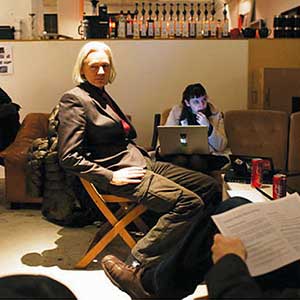The story beggars fiction. It links a lofty Australian hacker, a gender-confused Army PFC from the Oklahoma town where Karen Silkwood died and a pale Sacramento geek who sends emails reading, “I’m a minister and a journalist. You can treat this is as a confession or an interview.” We Steal Secrets: The Story of WikiLeaks, a documentary by Alex Gibney, shows good work that began in idealism and ended in acrimony, solitary confinement and televangelist-worthy money begging.
Gibney recounts the heights of Julian Assange’s WikiLeaks at its best. After Sept. 11, the U.S. government increased by nine times the number of classified documents. Some of this material was more embarrassing than sensitive. WikiLeaks exposed covered-up civilian casualties and the information that Pakistan was conniving with the Taliban. Flaunting their insufficient memory of the Pentagon Papers case, WikiLeaks’ people called this the biggest exposure of government secrets ever.
The film offers a real martyr: U.S. Army Private First Class Bradley Manning, imprisoned, tortured and prosecuted for leaking the information that The New York Times sold on newsstands. Manning’s betrayer, Adrian Lamo, speaks to the camera. What scared Lamo into snitching is the same thing behind Assange’s understandable paranoia.
There’s a popular prejudice that Assange’s Swedish sexual-assault case was a CIA honey trap. We Steal Secrets makes some very hard-to-refute points about this sordid affair. Gibney interviews “Anna” (one of the two accusers), who was given a world-class slut-shaming. This film asks a very tough question: Given that the United Kingdom has been doing the U.S.’s bidding relentlessly, why is Assange safer from rendition in Norfolk than he would be in Stockholm? The received idea is that Assange has blood on his hands, but as reporter Heather Brooke puts it, there’s a difference between “speculative blood” and the blood spilled by the murderers of Afghan civilians.
Ultimately, this excellent documentary shows the problems of being speculative, of being an “information libertarian,” as opposed to being a drudge working in a news field of slow, systematic vetting. It also suggests the derangement of Internet living and the drawbacks of being permanently online. Among the clips Gibney uses is the sequence in War Games where Matthew Broderick asks a computer if World War III has started or if it’s all just a game. The computer replies, “What’s the difference?”
R; 130 min.



